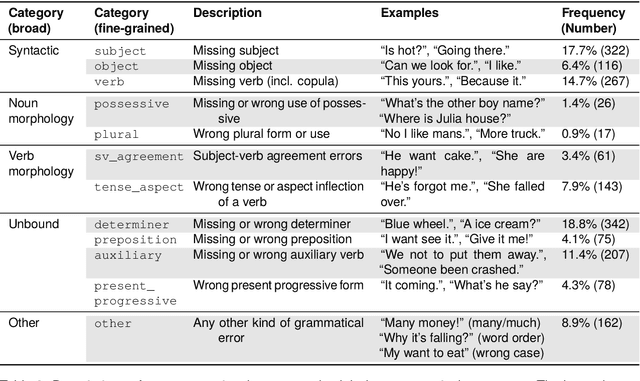Petros Kaklamanis
SED
Automatic Annotation of Grammaticality in Child-Caregiver Conversations
Mar 21, 2024



Abstract:The acquisition of grammar has been a central question to adjudicate between theories of language acquisition. In order to conduct faster, more reproducible, and larger-scale corpus studies on grammaticality in child-caregiver conversations, tools for automatic annotation can offer an effective alternative to tedious manual annotation. We propose a coding scheme for context-dependent grammaticality in child-caregiver conversations and annotate more than 4,000 utterances from a large corpus of transcribed conversations. Based on these annotations, we train and evaluate a range of NLP models. Our results show that fine-tuned Transformer-based models perform best, achieving human inter-annotation agreement levels.As a first application and sanity check of this tool, we use the trained models to annotate a corpus almost two orders of magnitude larger than the manually annotated data and verify that children's grammaticality shows a steady increase with age.This work contributes to the growing literature on applying state-of-the-art NLP methods to help study child language acquisition at scale.
 Add to Chrome
Add to Chrome Add to Firefox
Add to Firefox Add to Edge
Add to Edge